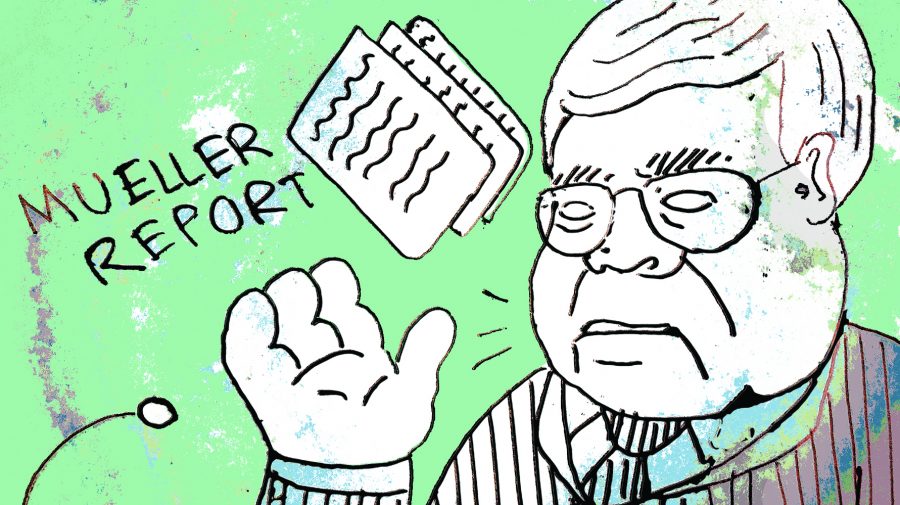After 22 months of investigation, Special Counsel Robert Mueller concluded his probe into Russian interference efforts in the 2016 presidential elections claims of the Donald Trump campaign colluding with the foreign government and the possibility that Trump obstructed justice. Facing public dissatisfaction with Attorney General William Barr’s four-page summary of the 448-page report, the Department of Justice released a redacted version of the Mueller report on April 18.
Mueller detailed in his report that Russia did interfere in the election “in sweeping and systematic fashion” through “two operations”— the first being the Internet Research Agency, who attempted to hurt Hillary Clinton’s campaign and boost Trump’s through social media accounts, and the second being GRU, a Russian intelligence who performed “computer-intrusion operations” against Clinton’s campaign and released “stolen Democratic documents.” Mueller charged about two dozen Russian nationals with election interference crimes.
Whether the Russians had a tremendous effect on the election is unknown as one cannot know its true psychological bearings on voter minds.
While partisans bicker, Russian President Vladimir Putin is becoming a bigger threat than usual, and possibly has the means to sway the 2020 U.S. elections.
Yet even that might not deter Trump’s skepticism of Russian meddling threatening our national security. After all, Trump associates the question of whether the Russians meddled in the 2016 election with people questioning the legitimacy of his 2016 win, calling it a “made up story” in 2017 and the Russian probe “a coup” on The Sean Hannity Show recently, Politico reports.
While Putin’s government and the Trump campaign’s goals to benefit from catapulting Trump into office coincided with each other, Mueller could not prove any direct “conspiracy or coordination” between the two. However, Mueller still indicted Trump’s former campaign advisors, including campaign chairman Paul Manafort sentenced to seven and a half years in prison for financial fraud and conspiracy involving Ukraine, and former fixer Michael Cohen sentenced to three years for lying to Congress.
Meanwhile, questions of son-in-law Jared Kushner and Donald Trump Jr.’s involvement in secret meetings with Russians are still unanswered so the Trump family should face further investigation.
Ultimately, the report portrays a campaign eager to embolden and cooperate with an authoritarian regime for political gains by exposing America’s largest vulnerability — its partisan divide.
Whether Trump obstructed justice is not as obscure as it seems. Mueller outlined at least twelve instances summarized by The New York Times where Trump might have obstructed justice, such as trying to fire Mueller and pushing White House lawyer Don McGahn to deny it.
Although Trump’s associates did not listen, Mueller did not accuse nor exonerate Trump since he adhered to the Justice Department’s opinion during Richard Nixon’s Watergate scandal that a sitting president cannot be indicted. Trump’s “Complete and total EXONERATION” tweet lies with the rest of his “fake” truths.
If the House starts impeachment trials soon, they would probably jeopardize Democrat chances in 2020 as it would face a majority Republican Senate that would quickly acquit Trump.
Mueller’s findings warrant further investigation by the House, preferably with Trump’s actual testimony and not written answers, that could possibly convince some Trumpublicans and Republicans to hop on the impeachment train.






